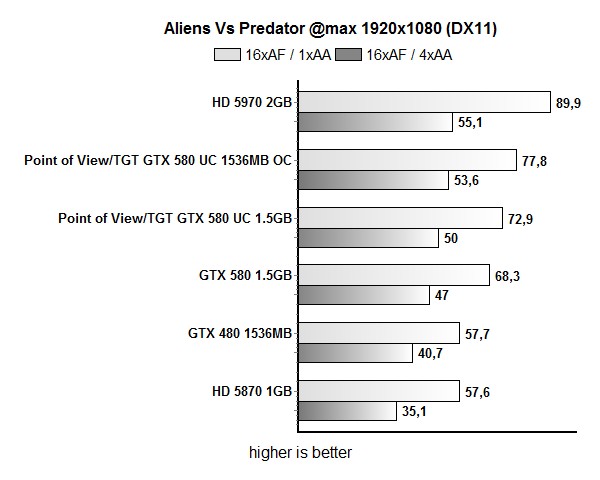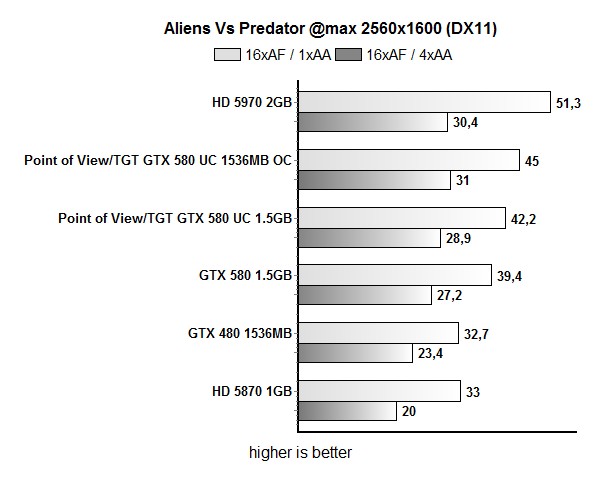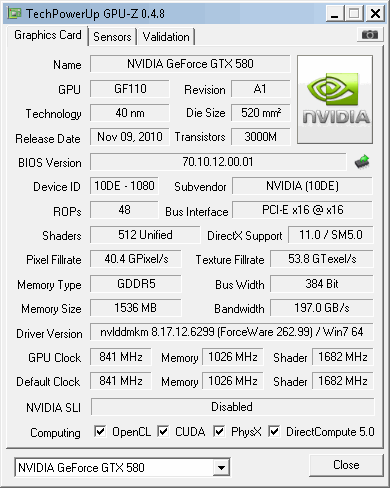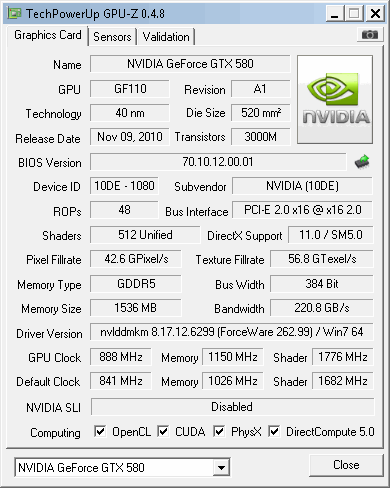Index
Overclocking, Consumption and Thermals
Geforce GTX 580 packs plenty of OC potential, with many partners jumping on the OC ship. While the reference GTX 480 runs at 772MHz for the GPU and 1002MHz for the memory, our factory overclocked Point of View / TGT GTX 580 Ultra Charged runs at 841MHz for the GPU and 1026MHz for the memory.
The memory on GTX 580 Ultra Charged has only received a minor boost but the GPU runs 69MHz faster than reference. This will be enough for about 7% better gaming results, but it must be said that there’s additional room for overclocking. In fact, our further overclocking resulted in 14% better performance when compared to the reference card.

Overclocking GTX 580 cards will depend on core voltage and overclocking results will vary from card to card. TGT team leaves room for additional overclocking on all its cards, and the good thing about PoV/TGT OC cards is that GPU voltage has been increased by default, which will help with overclocking results.

We recently tested a reference GTX 580 (1025mV default voltage) and managed to overclock the GPU to 855MHz. This is only 14MHz higher than GTX 580 Ultra Charged’s clock, but we didn’t mess with voltages or change the fan speed from AUTO mode.
Point of View / TGT pushed the default voltage to 1125mV, resulting in increased stability at higher clocks. Without meddling with voltages or changing the fan speed from AUTO mode we managed to push our today’s test subject’s GPU to 888MHz and the memory to 1150MHz (4600MHz effectively). Upping the voltage to 1138mV didn’t result in additional overclocking.

Higher factory clocks at the same time mean that the card will consume more compared to the reference card.
FurMark test is not quite favored by Nvidia’s driver and you’ll have to manually disable throttling or else the card will downclock on its own. Our consumption measurements show about 55W higher consumption compared to the reference card. The following results were recorded after we disabled Nvidia’s throttling mechanism.

During Aliens vs Predator test our rig consumed about 425W with the reference GTX 580 and about 473W with GTX 580 UC. Strangely enough, the same scenario with GTX 480 resulted in only 410W, which doesn’t quite concur with the GTX 580’s touted lower consumption. Nevertheless, we decided to publish the results as they were.
The fan isn’t too loud during intensive gaming and we can finally say that we’re pleased with the noise levels. Speeding up the fan didn’t contribute to overclocking headroom.



